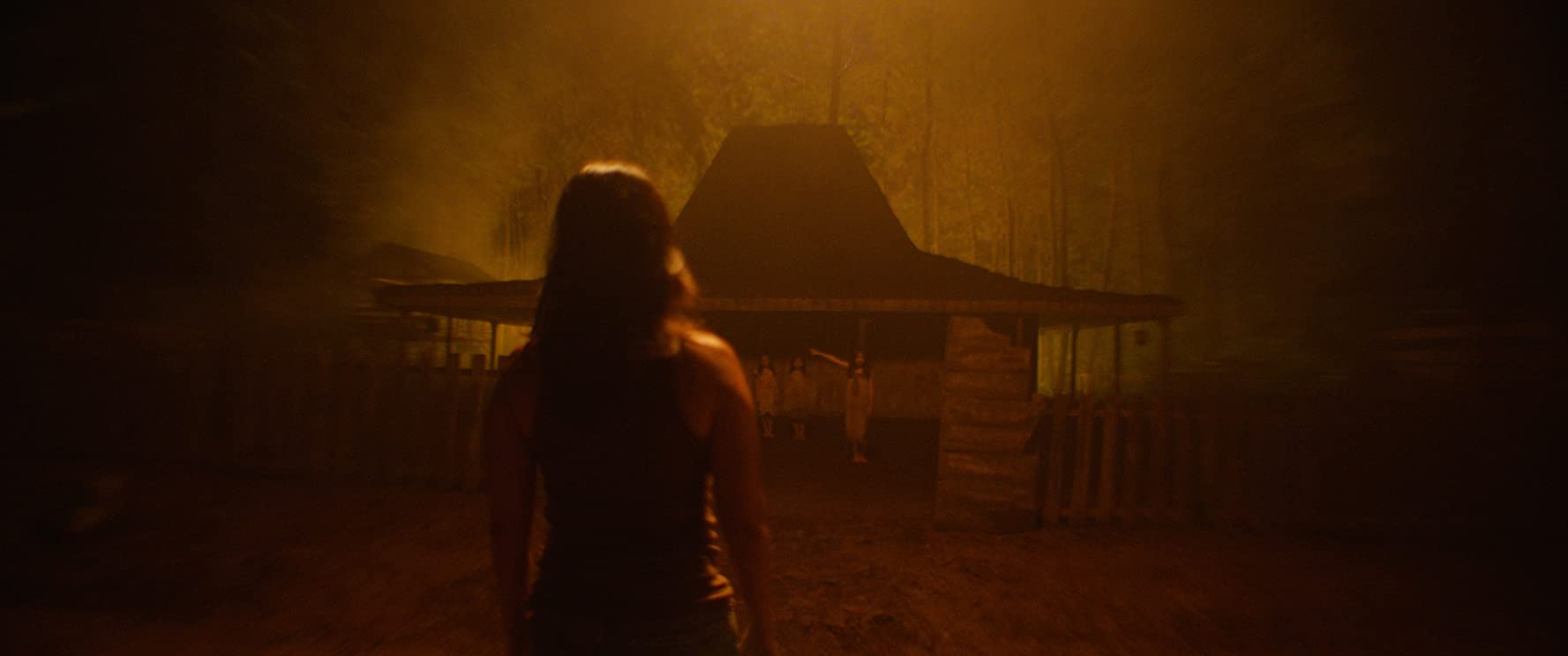What to Watch Verdict
Impetigore values storytelling over base-value scares to reconnect with pasts better left forgotten, but impossible to escape.
Pros
- +
Emphasis on regional horror.
- +
Benefits from a strong narrative.
- +
A worthy follow-up to 'Satan's Slaves'
Cons
- -
The climax speeds forward.
- -
Won't be "scary" to some.
Joko Anwar’s Impetigore is an Indonesian horror tale that proves you can learn about foreign cultures while still experiencing universal frights. Anwar’s previous film, Satan’s Slaves, is a masterclass in haunted house cinema that mirrors James Wan’s talents from abroad. Impetigore isn’t on the same level of paranormal terror, but its ritualistic narrative evokes a different, still worthwhile, genre experience. One that’s rooted in mysticism, fertility curses, and villages where black magic beliefs reign supreme (with valid evidence).
The film revolves around Maya (Tara Basro), who's living out her big-city dreams but without much financial success. One night, she’s attacked by a man with a machete who mutters things about where she grew up and the parents she doesn’t remember. Maya survives and begins researching her past to find she may have inherited a substantial estate in the village where she was born. With nothing to lose, Maya - alongside best friend Dini (Marissa Anita) - sets off for Harjosari in hopes of stumbling into a fortune. Instead, she finds her birthplace is plagued by a deadly curse that may have originated with her family, according to elder Ki Saptadi (Ario Bayu).
By stamping your horror passport with an Indonesian flag, you’ll gain entry into a nationally significant genre world that’s otherwise atypical to stateside audiences. Ghosts may appear, visions may conjure supernatural presences, but Impetigore is first and foremost a story based on human threats. Ki Saptadi oversees childbirths in his village, hoping the next one is not delivered skinless as has happened for countless years. It’s a horrid hex upon Harjosari, but again, Anwar’s more interested in the people carrying out “necessary” acts (drowning said fleshless babies) than bumps in the night. It’s an international approach to hauntings that mixes faith with poverty, as tribal councils govern based on longstanding, quite brutish traditions.
I stress this because I want to sell Impetigore to American audiences properly. Don’t get me wrong; there are terrifying moments. Visuals that involve flayed infants or desperate, violent attempts to reverse the damnation cast upon Harjosari. It’s also a majestic drama at times, as Maya learns about her puppetmaster father wooing his gorgeous bride through shadowplay. It’s the same puppetry talent that Ki Saptadi possesses, which I assure you is more transfixing than it sounds. Paper cutouts are twirled behind a large sheet that projects the manipulatable designs as black figures on a cloth screen. These "human television" scenes transport us to an almost forgotten realm. Anwar tells his grim fairytale with horror on his mind, but it’s not straightforward terrorization. It's more whimsical, primal, and bygone in comparison.
Towards the film’s finale, we do run into some plotted choices that seem like a fast-forward towards conflict resolution. The way Maya uncovers how to possibly end Harjosari’s woes (without becoming a sacrifice) is through a whirlwind montage whispered by an apparition. It’s so...perfect? In Satan’s Slaves, there’s vastly more tension and emotional gravity where Impetigore’s climax is “solved” during what’s no more than a dream sequence. It feels almost like a quick-fix exposition dump versus the quite muted first few acts, which establish the village’s barbaric practices as unnerving normalcy. Maya returns home looking for a new life, but instead might find certain death to benefit the greater good - it’s a story that’s rife with trauma and territorial paranoia. Then it all wraps up in what zips by like a flash, albeit sustaining this “land of the lost” moodiness that grants Anwar third-act forgiveness.
In no way is Impetigore a letdown. Joko Anwar’s follow-up to my favorite horror movie of the last few years (Satan’s Slaves) succeeds as worthwhile foreign horror titles should. We’re welcomed into a cultural representation of a country’s homegrown nightmares, which are not dulled for mass-marketable appeal. As we discover what materials Ki Saptadi’s puppets are made from, as Maya reflects on the horrors of her ancestral history, there’s plenty of suspenseful discomforts to withstand. Spilled blood, torchlit hunting parties, and outsider damnation are all in play. It’s just a more fantastical horror film that doesn’t care about jump scares or familiar structures, sometimes to a detriment. Nevertheless, Impetigore whispers a chilling lullaby about family, fortune, and how the sins of our past send ripple effects into yet-to-be-understood futures.
Impetigore will release on Shudder July 23rd 2020.
Matt Donato is a Rotten Tomatoes approved film critic who stays up too late typing words for What To Watch, IGN, Paste, Bloody Disgusting, Fangoria and countless other publications. He is a member of Critics Choice and co-hosts a weekly livestream with Perri Nemiroff called the Merri Hour. You probably shouldn't feed him after midnight, just to be safe.












